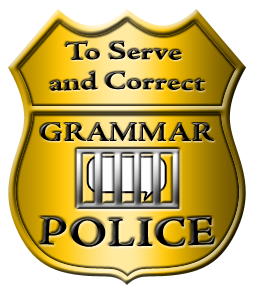D
diveactive
Guest
So many time i get asked . Whats the best ascent rate. .
Simply in diving everything should be done slow. Its a none competitive sport.
Your Descent and ascent should be slow. as so should be your dive.
Some organizations have different ascent rate . Some 18 mts per min and some 9.
the slower the better to allow the N2 those micro bobbles to exchange.
gauge not working! come up on the smallest bubbles. It should take 60 sec to rise 10 mts. An average dive computer works on that rate 10 mts per min.
However . If you the 18 Mtr per min trained. and got it in you head this is what you do. the if your down deeper the 10 mts.
Come up to the last 10 mts no more then 18 mts per min. Then slow it down even more to 9 Mts per min. Do your safety stop. and air allowing take as long as you can. to go from 5 mts to the surface. TO MANY DIVERS THINK THAT BECAUSE THEY HAVE DONE A SAFETY STOP > THEY CAN GO TO THE SURFACE RIGHT AWAY. NO NO NO!
Slow it down even more. More so after a deep dive and if your a bigger person. Or been working or swimming into currents.
remember to calculate you air . come up with 100 bar or more. See dive profile.
Never exceed your dive tables And watch your dive computer. This applies more so in cold waters. or at Altitude.
I am not a tech diver. However I hold a Nitrox ANDI and Did much of my diving in the UK . Where I dive in borneo little need for tech diving. However . Common sense
and the above should be kept in mind. Ascend slow as you can air allowing. as a Guide you should be at 50 bar between 6 mts and the surface . no less. 50 bar on a relaxed dive then will last at 5 mts quite along time depending on your breathing rate. Just because your on 50 bar , does not mean stressing your self wondering have you got enough or you in the red line. Yes I have divers who get worried when they get 50 bar or lower. Just relax! make your way to 5 mts to do that safety stop Ask me more.
Simply in diving everything should be done slow. Its a none competitive sport.
Your Descent and ascent should be slow. as so should be your dive.
Some organizations have different ascent rate . Some 18 mts per min and some 9.
the slower the better to allow the N2 those micro bobbles to exchange.
gauge not working! come up on the smallest bubbles. It should take 60 sec to rise 10 mts. An average dive computer works on that rate 10 mts per min.
However . If you the 18 Mtr per min trained. and got it in you head this is what you do. the if your down deeper the 10 mts.
Come up to the last 10 mts no more then 18 mts per min. Then slow it down even more to 9 Mts per min. Do your safety stop. and air allowing take as long as you can. to go from 5 mts to the surface. TO MANY DIVERS THINK THAT BECAUSE THEY HAVE DONE A SAFETY STOP > THEY CAN GO TO THE SURFACE RIGHT AWAY. NO NO NO!
Slow it down even more. More so after a deep dive and if your a bigger person. Or been working or swimming into currents.
remember to calculate you air . come up with 100 bar or more. See dive profile.
Never exceed your dive tables And watch your dive computer. This applies more so in cold waters. or at Altitude.
I am not a tech diver. However I hold a Nitrox ANDI and Did much of my diving in the UK . Where I dive in borneo little need for tech diving. However . Common sense
and the above should be kept in mind. Ascend slow as you can air allowing. as a Guide you should be at 50 bar between 6 mts and the surface . no less. 50 bar on a relaxed dive then will last at 5 mts quite along time depending on your breathing rate. Just because your on 50 bar , does not mean stressing your self wondering have you got enough or you in the red line. Yes I have divers who get worried when they get 50 bar or lower. Just relax! make your way to 5 mts to do that safety stop Ask me more.






